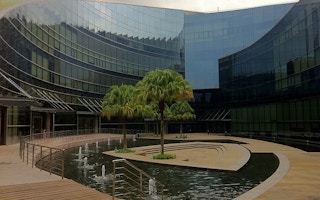What do Singapore and Denmark have in common? Both are prosperous, have small populations, have among the world’s most innovative economies, and are coastal, facing rising water levels as a result of climate change.
To continue reading, subscribe to Eco‑Business.
There's something for everyone. We offer a range of subscription plans.
- Access our stories and receive our Insights Weekly newsletter with the free EB Member plan.
- Unlock unlimited access to our content and archive with EB Circle.
- Publish your content with EB Premium.
The two countries, which have engaged in bilateral trade for the last 50 years, have forged a joint initiative to spur green innovation to help mitigate the impact of climate change that taps into Singapore’s small and medium-sized business community.
A new partnership launched on Monday between Nanyang Technological University Singapore (NTU Singapore) and Danish consortium Smart City World Labs will see Singapore become a test bed for various green innovations, ranging from water and energy-saving technologies to green building systems and electric vehicles.
Smart City World Labs’ role is to provide Singaporean sustainable business SMEs with access to Danish and global markets that are ready to pay for green innovations while they’re in the test phase, in a setting called “living labs.”
“
Connecting Danish and Singaporean living labs will make it easier for our small and medium-sized companies to test and adapt their innovative products in a real life scenario, and to showcase their benefits to a broad range of stakeholders in our markets.
Dorte Bech Vizard, Ambassador of Denmark to Singapore
NTU Singapore, led by its Energy Research Institute, will work with the SMEs in developing green technologies using NTU’s 200-hectare campus as a laboratory. The campus is already a living lab for several environment-friendly research projects including the 5-megawatt rooftop solar farms installed on buildings in the campus.
Dorte Bech Vizard, Ambassador of Denmark to Singapore, said: “Denmark and Singapore – both small countries – are important drivers of the green transition through smart tenders and new ways of doing public-private collaboration.”
“Connecting Danish and Singaporean living labs will make it easier for our small and medium-sized companies to test and adapt their innovative products in a real life scenario, and to showcase their benefits to a broad range of stakeholders in our markets,” she added.
Based in Denmark, the Smart City World Labs Consortium comprises of the Royal Danish Embassy in Singapore, the Technical University of Denmark (DTU), the City of Copenhagen, Gate 21 and Quercus Group, a consultancy firm that specialises in sustainable development.










